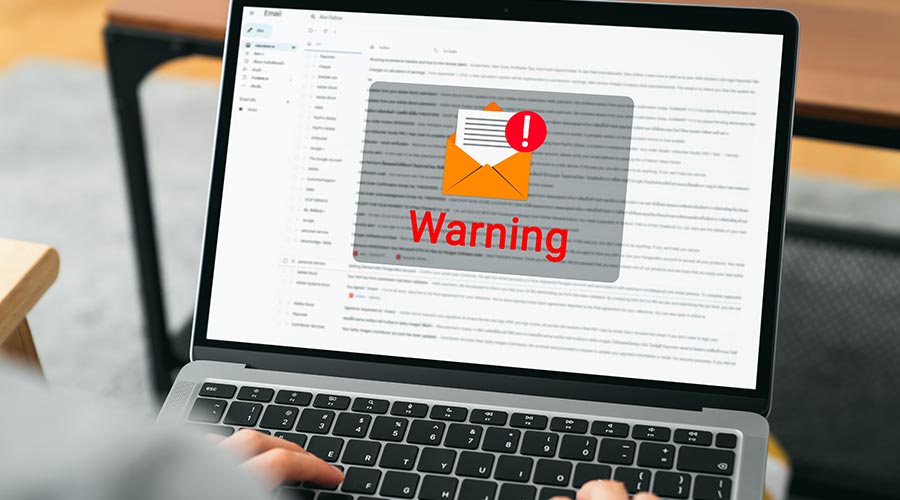August 22, 2023

In recent years, the healthcare industry has experienced a rapid digital transformation, with a majority of medical records and patient information being stored electronically. This shift towards digitization has undoubtedly improved the accessibility and accuracy of healthcare data, but it has also led to a significant increase in cyber attacks on healthcare systems.
In a recent report, the Federal Bureau of Investigation (FBI) warned that healthcare records are still a prime target for computer hackers, and healthcare providers must take significant measures to safeguard their patients' sensitive information.
FBI warns of sophisticated cyber attacks targeting healthcare systems

The FBI report indicates that cyber criminals have become increasingly sophisticated in their attack methods, using a variety of tactics such as ransomware, phishing, and social engineering to gain unauthorized access to healthcare systems. The consequences of these attacks can be severe, resulting in compromised patient information, disrupted healthcare services, and significant financial losses for healthcare providers.
One of the most prevalent cyber threats to the healthcare industry is ransomware attacks. Ransomware is a type of malware that encrypts a victim's data and demands a ransom payment in exchange for the decryption key. Healthcare providers are particularly vulnerable to these attacks because of the sensitive nature of the information they store and the potential impact of losing access to critical patient data.
A Growing Threat to Healthcare Data Security

Phishing attacks, on the other hand, involve tricking users into providing sensitive information such as login credentials or personal information. These attacks often target healthcare employees through email or social media, and can result in compromised access to the healthcare system or the theft of sensitive patient data.
The FBI report emphasizes that healthcare providers must take proactive measures to protect patient data and mitigate the risk of cyber attacks. This includes implementing strong cybersecurity measures such as firewalls, anti-virus software, and multi-factor authentication. Healthcare providers should also conduct regular security audits and employee training to identify vulnerabilities and ensure that employees are aware of best practices for cybersecurity.
Safeguarding Patient Data: The Imperative for a Secure Healthcare System

The healthcare industry must remain vigilant in protecting patient data from cyber attacks. The shift towards digitization has brought numerous benefits to the industry, but it has also created new risks that must be addressed. Healthcare providers must take proactive steps to safeguard patient data and ensure that their systems are secure against cyber threats. By doing so, they can maintain the trust of their patients and protect the critical information that they rely on to provide quality care.
Secure Your Critical Data with HHC Group's Proprietary Database
HHC Group's proprietary systems are designed to provide secure and reliable access to critical data. The database is housed on secure servers that are protected by industry-standard security protocols, including encryption and firewalls. This ensures that the data is protected from unauthorized access and tampering. HHC Group is committed to supporting self-insured clients in safeguarding their sensitive information and upholding the trust of their clients.
Take action now and make sure your data is secured with strong cybersecurity measures. Partner with HHC Group to ensure the protection of your clients' sensitive information.
Contact us today: 301-960-7092
 Medical Overbilling is Costing You Billions
Medical Overbilling is Costing You Billions
 In recent years, the healthcare industry has experienced a rapid digital transformation, with a majority of medical records and patient information being stored electronically. This shift towards digitization has undoubtedly improved the accessibility and accuracy of healthcare data, but it has also led to a significant increase in cyber attacks on healthcare systems.
In recent years, the healthcare industry has experienced a rapid digital transformation, with a majority of medical records and patient information being stored electronically. This shift towards digitization has undoubtedly improved the accessibility and accuracy of healthcare data, but it has also led to a significant increase in cyber attacks on healthcare systems. The FBI report indicates that cyber criminals have become increasingly sophisticated in their attack methods, using a variety of tactics such as ransomware, phishing, and social engineering to gain unauthorized access to healthcare systems. The consequences of these attacks can be severe, resulting in compromised patient information, disrupted healthcare services, and significant financial losses for healthcare providers.
The FBI report indicates that cyber criminals have become increasingly sophisticated in their attack methods, using a variety of tactics such as ransomware, phishing, and social engineering to gain unauthorized access to healthcare systems. The consequences of these attacks can be severe, resulting in compromised patient information, disrupted healthcare services, and significant financial losses for healthcare providers. Phishing attacks, on the other hand, involve tricking users into providing sensitive information such as login credentials or personal information. These attacks often target healthcare employees through email or social media, and can result in compromised access to the healthcare system or the theft of sensitive patient data.
Phishing attacks, on the other hand, involve tricking users into providing sensitive information such as login credentials or personal information. These attacks often target healthcare employees through email or social media, and can result in compromised access to the healthcare system or the theft of sensitive patient data. The healthcare industry must remain vigilant in protecting patient data from cyber attacks. The shift towards digitization has brought numerous benefits to the industry, but it has also created new risks that must be addressed. Healthcare providers must take proactive steps to safeguard patient data and ensure that their systems are secure against cyber threats. By doing so, they can maintain the trust of their patients and protect the critical information that they rely on to provide quality care.
The healthcare industry must remain vigilant in protecting patient data from cyber attacks. The shift towards digitization has brought numerous benefits to the industry, but it has also created new risks that must be addressed. Healthcare providers must take proactive steps to safeguard patient data and ensure that their systems are secure against cyber threats. By doing so, they can maintain the trust of their patients and protect the critical information that they rely on to provide quality care.